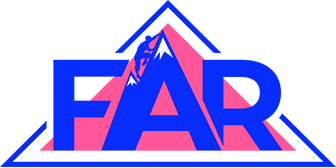Recovery meetings and rehabilitation steps have been used for decades and continue to be vital parts of the recovery process. These programs create a foundation for those entering and leaving addiction treatment. Not only do these provide structure but they also promote accountability and community. At Focused Addiction Recovery, we provide you with all the tools and resources needed to overcome addiction and maintain sobriety.
What Are Recovery Meetings?
Recovery meetings are a type of group therapy that supports people who are overcoming addiction. These meetings usually follow the 12 steps outlined by Alcoholics Anonymous and provide a space for people to share their experiences and connect with others who understand what they are going through. Utilizing rehabilitation steps have been a proven way to create accountability and structure in a person’s journey toward sobriety.
The 12-steps were created by the founders of Alcoholics Anonymous to establish guidelines to overcome alcohol addiction. The program gained enough success in its early years for other addiction support groups to adapt the steps to their specific substance or addictive behavior. Today, 12-step meetings are a popular and effective way for people in recovery to find support and fellowship. Attending 12-step meetings can help recovering addicts stay on track with their sobriety goals and maintain their recovery over the long term.
What Are The 12-Steps Of
Narcotics Anonymous (NA)?
 12 fundamental rehabilitation steps are used in several support groups and recovery meetings. These set a framework for accountability and eventual recovery. While some use these 12-steps in a spiritual or religious sense, it is not necessarily always religion-oriented. These steps are universal and have helped thousands of people overcome addiction in tandem with specialized addiction programs.
12 fundamental rehabilitation steps are used in several support groups and recovery meetings. These set a framework for accountability and eventual recovery. While some use these 12-steps in a spiritual or religious sense, it is not necessarily always religion-oriented. These steps are universal and have helped thousands of people overcome addiction in tandem with specialized addiction programs.
- We admitted we were powerless over our addiction and that our lives had become unmanageable.
- We came to believe that a power greater than ourselves could restore us to sanity.
- We decided to turn our will and our lives over to the care of this power.
- We made a searching and fearless moral inventory of ourselves.
- We admitted to ourselves, to others, and our higher power our wrongs.
- We were entirely ready to have these wrongs removed.
- We humbly asked our higher power to remove our shortcomings.
- We made a list of all persons we had harmed and became willing to make amends to them.
- We made direct amends to such people wherever possible, except when to do so would injure them or others.
- We continued to take personal inventory of ourselves, and when we were wrong, we promptly admitted it.
- We sought through prayer and meditation to improve our conscious contact with our higher power, praying only for knowledge of its will for us and the power to carry that out.
- Having had a spiritual awakening as the result of these steps, we tried to carry this message to others who suffer from addiction and to practice these principles in all our affairs.
Since addiction recovery is a lifelong process, many people end up coming back to some of these fundamental steps and fulfilling them once more.
What Are The Different Types Of 12-Step Programs?
There are several different types of 12-step programs, each for different purposes. The most popular forms of rehabilitation steps include Alcoholics Anonymous, Narcotics Anonymous, and more drug-specific programs like Cocaine Anonymous and Heroin Anonymous.
Alcoholics Anonymous is a treatment organization that brings people together to eliminate their drinking problems in North Carolina. Members do not have to pay dues, and they can join the organization at any age. They can have multiple degrees, or they can be high school dropouts. The main purpose of AA is to help people with alcohol use disorder overcome their addictions.
There are many different types of 12-step meetings available for people in recovery, so it is important to find one that feels like a good fit. Some meetings are gender-specific, while others focus on specific substances or behaviors. There are also meetings for people who are struggling with multiple addictions, and for families and friends of people in recovery.<
Narcotics Anonymous is a treatment program in North Carolina in which former substance users help other substance users remain sober. Everyone is eligible to join this organization if they want to stop using substances.
If someone joins NA, he or she can expect to be welcomed with open arms. This group is not interested in anyone’s past, how much the person used, or how much or little they currently have. The organization states that, when people join their organization and stick with it, they remain sober.
There are also specific drug 12-step programs such as Cocaine Anonymous, Heroin Anonymous, Marijuana Anonymous, and other topic-specific programs. These focus on drug addiction and work very similarly to NA/AA. If you or a loved one is suffering from specific drug addiction, these programs can be great aids.
There are also several options for both men and women when it comes to 12-step programs. While many of these programs include all genders, there are several options available. Gender-specific programs can be beneficial because they allow specific topics to be targeted during the sessions.
What To
Expect In A 12-Step Program
 If you are interested in attending a 12-step meeting, there are a few things you should know and aim to expect. Meetings are usually free and open to anyone who is struggling with addiction. You do not need to be a member of any organization to attend, and you can come and go as you please.
If you are interested in attending a 12-step meeting, there are a few things you should know and aim to expect. Meetings are usually free and open to anyone who is struggling with addiction. You do not need to be a member of any organization to attend, and you can come and go as you please.
Since it’s a collaborative effort, you will likely be asked to share your story at some point during the meeting. This can be a scary prospect, but it is important to remember that everyone in the room is there to support you. You are not being judged, and no one is required to share anything they are not comfortable with.
12-step meetings are based on the principle of anonymity. This means that what is said in the meeting stays in the meeting. You can rest assured that your privacy will be respected, and you can feel free to speak openly without fear of judgment or repercussions.
If you are struggling with addiction, know that you are not alone. There are people all over the world who are in recovery and attending 12-step meetings. These meetings can provide you with support, inspiration, and hope for a better future.
The Benefits Of 12-Step Programs
12-step programs can provide a sense of community and support that is vital to recovery. In these meetings, you will hear stories of hope and courage from people who have been in your shoes. You will also have the opportunity to share your own story and connect with others who understand what you are going through. Benefits also include:
- Promotes accountability during recovery
- Creates a sense of community
- Offer structure and routine, both are very important in the recovery
- Can be used during and after addiction recovery
- Breaks stigma and remains private
- Provides purpose
To get the most out of 12-step meetings, it is important to be open and honest about your thoughts and feelings. It is also helpful to develop a support system of people who you can rely on for encouragement and motivation. Finally, be patient with yourself and remember that recovery is a journey, not a destination.
Finding The Right
12-Step Program In Your Area
If you are interested in finding a 12-step program, there are many resources available online. Alcoholics Anonymous, Narcotics Anonymous, and Al-Anon all have websites where you can search for meetings in your area. You can also ask your doctor or therapist for recommendations. Additionally, at Focused Addiction Recovery, we offer telehealth and online services for you and your loved ones. We make getting help accessible, no matter where you may be.

